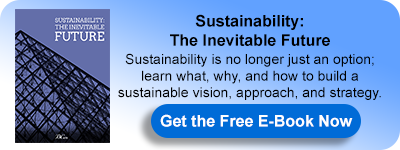Making Petroleum Dependent Businesses more Sustainable
Sustainability is a word often seen in CSR statements in describing volunteer activities and initiatives undertaken by organizations in all industries. However, how many of these organizations actually use sustainability as a model for changing their way of doing business? How many companies that depend on petroleum, a non-renewable resource, actually implement sustainability practices into their everyday business? Interface, Inc., a company that depends on petroleum for its core-business, carpet manufacturing, took the challenge of sustainability head-on with founder Ray Anderson leading the way and by using innovative processes reinvented the carpet industry business.
The Journey to Sustainability
Along with developing its own innovative sustainability programs to reduce waste, Interface also adopted The Natural Step in 1996 which gives organizations a strategic framework through which they can analyze their sustainability challenges and set mid to long-term goals to address those challenges. Integrating this framework into their day-to-day business presented Interface, a carpet manufacturer dependent on petrochemicals, with a large challenge. In response, they designed the seven fronts:
- Elimination of Waste - set up a program, QUEST, that rewards employees with cash bonuses for finding ways to reduce/eliminate waste
- Benign Emissions - remove wastes emitted that have negative or toxic effects.
- Renewable Energy - reduce energy demands and substitute non-renewable resources with renewable ones
- Closure of the Loop - redesign processes and products into cyclical flows that recycle instead of downcycle
- Resource-Efficient Transportation - bring locations closer to employees and consumers physically and via telecommuting
- Sensitivity Hookup - create a community within the organization that understands natural systems and the impacts of the industry
- Redesign of Commerce - focus on service and value instead of delivery of material
By creating these seven fronts, Interface had created the framework they would follow to become more sustainable and work towards their vision of "being an organization that takes nothing from the Earth that isn't renewable and does nothing to harm the biosphere". Believing that environmental sustainability wasn't enough, Interface also set goals to become financially and socially sustainable as well. Through this process, Interface would take their first steps to reinvent the carpet business, create innovations, and cut costs dramatically.
For more about the topic of sustainability, download our latest book " Sustainability: The Inevitable Future " for FREE:
